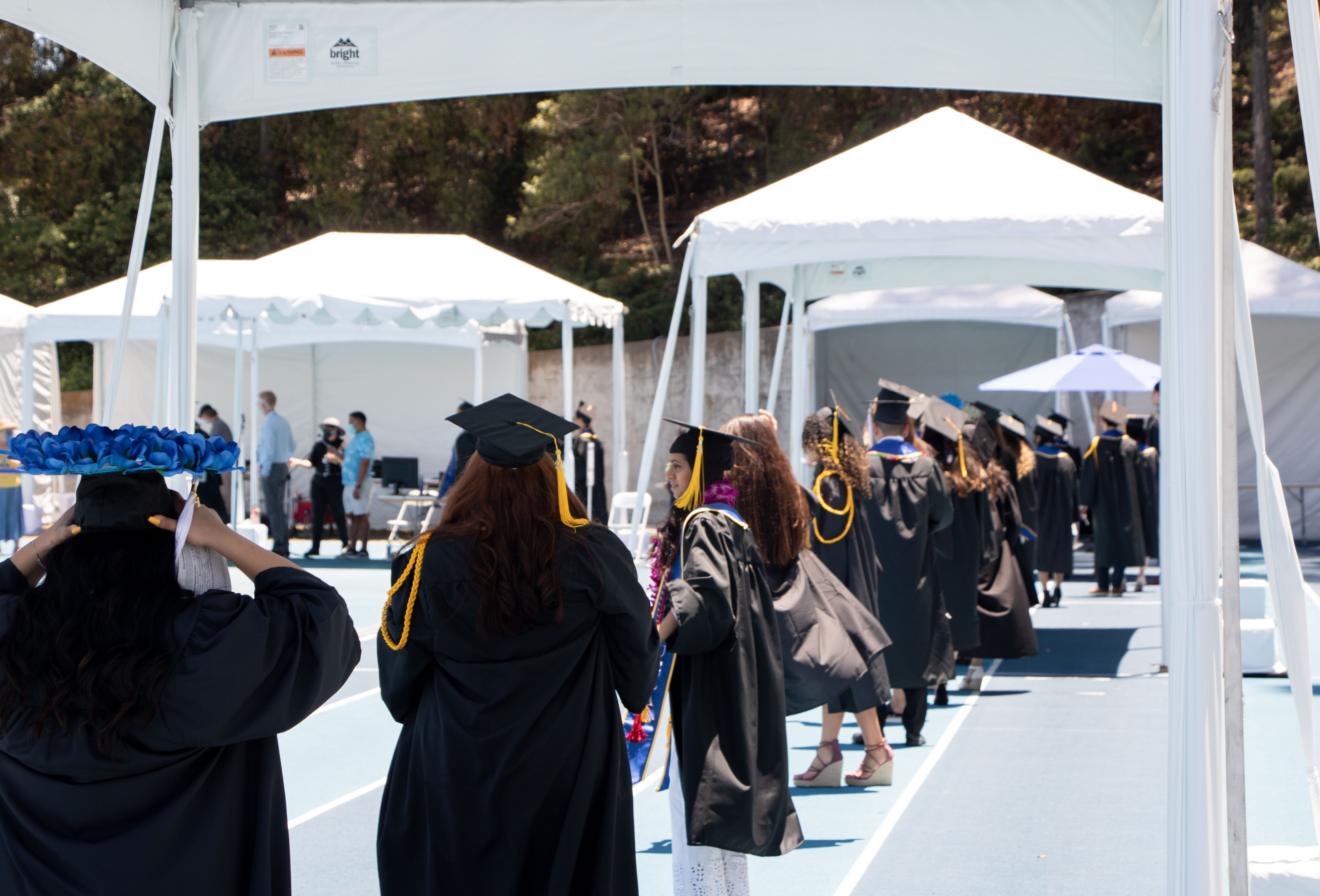Fourth-year students reflect on disruptions to instruction during time at UCLA
The homepage of the video meeting platform Zoom is pictured. Fourth-year students have experienced multiple interruptions to their education including the COVID-19 pandemic and Los Angeles County wildfires resulting in transitions to remote instruction. (Daily Bruin file photo)
For UCLA’s fourth-year students, transitions to Zoom classes are nothing new.
The university switched to remote instruction less than a week into winter quarter after fires broke out in Los Angeles County, one of which – the Palisades fire – prompted an evacuation warning bordering the campus. For students who experienced the COVID-19 pandemic, teaching assistant strikes and pro-Palestine protests, the switch to Zoom almost felt routine.
“Nothing surprises me anymore,” said Julia Mizzi, a fourth-year molecular, cell and developmental biology student. “So much has happened that there’s nothing that’s going to shock me.”
[Related: UCLA extends online instruction through end of spring quarter]

According to the California Department of Forestry and Fire Protection website, the ongoing fires have destroyed over 14,000 structures, prompting thousands to evacuate.
[Related: LIVE: JANUARY 2025 FIRES]
The danger posed by the fires, along with the uncertainty produced by evacuations and virtual classes, felt similar to COVID-19 restrictions from her first year, Mizzi said.
“You don’t know when it’s going to end,” she said.
Sukie Yeung, a fourth-year business economics student, said she remembers a death in the dorms and a shooting threat during her first year of college, teaching assistant strikes during her second year and pro-Palestine protests during her third year leading to modified instruction.
“The protests were huge,” she said. “I remember there were times when my friend would tell me, ‘Hey, I might not make it to this hangout because I might get arrested.’”
During the spring, UCLA canceled classes and moved instruction online after counter-protesters attacked the UCLA Palestine Solidarity Encampment. Some professors chose to keep in-person instruction optional for the rest of the quarter, even after restrictions were lifted.
[Related: UCLA cancels classes following violence at Palestine solidarity encampment]
The changing academic environment makes learning and engaging with students and professors more difficult, Mizzi said, adding that she believes it is difficult for professors to teach effectively online.
The emergency evacuations resulted in a stressful learning atmosphere even though his classes were virtual, Marco Burdick, a fourth-year geography/environmental studies student, said.
“The fire not only disrupted me academically but also disrupted being a Southern California resident,” he said. “It was stressful with the air quality and living in a building with other people my age having to evacuate – that’s a lot of stress.”
Burdick added that dealing with disruptions throughout his collegiate career has made it difficult to stay on track for the rest of the quarter, particularly when online school felt less like classes and more like a vacation. He said he refocused after last spring’s protests by making an effort to stay connected to professors, other students and friends.
“Coming back, I made points to go to office hours whenever possible, tried to stay in contact with professors through emails and connected more with other students through study groups,” Burdick said.
Although UCLA was not placed under an evacuation order, the threat of the fire and worries about air pollution led many students to leave campus and find temporary housing.
[Related: Students host other Bruins in hometowns during Southern California fires]
Yeung said the fires reminded her to be adaptable, adding that the transition to Zoom allowed her to fly back to her family in Hong Kong.
Mizzi said she has had to learn to move past disruptions throughout her academic career.
“We are very resilient,” she said. “We have been through a lot of crazy disruptions. So if we can get through this, we can get through a lot of other things.”
